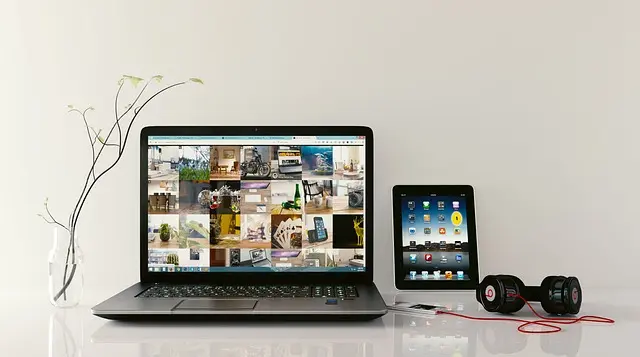PCs remain the top choice for the best gaming experience. But, they are not portable, meaning you cannot enjoy your favorite games when you’re on the move. Gaming laptops have different hardware requirements; therefore, you must be keen to choose a gaming laptop that will meet your needs adequately.
This guide provides a good starting point for determining the key features and components to look for when choosing a gaming laptop that will provide a seamless gaming experience.
What to Look for in a Gaming Laptop

A good gaming laptop must have the hardware to support the requirements of most games while providing you with a seamless user experience. Here are the main features to look for when choosing a gaming laptop:
CPU
The CPU is a critical component in a gaming laptop. It is the power source that drives the laptop, ensuring you can play your games seamlessly without lags. Gaming requires large amounts of processing power, so the gaming PC you choose must be capable of meeting these needs.
At a minimum, choose a laptop that runs on Core i7. Other processors capable of meeting the high demands of gaming laptops include AMD Ryzen and Intel Core i9. If you are looking for a mid-range processor that’s also affordable, choose Intel Core i5 -13600K and Core i5- 13400.
Storage Space
A good gaming laptop should have adequate space to store all your games. Most games take up a lot of space, with the average requiring at least 40GB of storage space. This means you need a gaming laptop that starts at a minimum of 1TB of storage.
Even if your laptop doesn’t match this, you can still provide additional storage with an external hard drive. Consider using mystake promo code to find games you can play.
RAM
Gaming is a RAM-intensive activity; therefore, the gaming laptop you choose must meet these requirements. RAM stores your laptop’s short-term memory, facilitating proper processing and operation.
Choose a laptop with at least 8GB RAM, as this is capable of holding the baseline AAA titles. If you handle other activities besides gaming, such as live-streaming or video chatting, choose a laptop with at least 32GB RAM.
In addition to RAM capacity, consider the RAM speeds of each computer. Ensure that the speed and capacity match, working together to deliver a seamless gaming experience.
Graphics
The Graphics Processing Unit (GPU) of a computer is just as important as the CPU. The GPU is responsible for rendering and displaying images, videos, and other graphics on your computer.
A dedicated GPU is the best option for gaming laptops as it provides a smoother experience since processing is much faster. If you can afford it, go for GPs with a higher clock speed and a large graphics memory to give you a fast and immersive gaming experience as you can run your games on higher settings. At the minimum, choose a GPU with a minimum VRAM of 12 GB.
NVIDIA has good GPUs designed for different gaming applications. Some of the best budget GPUs include the NVIDIA RTX 4070 Super, AMD Radeon RX 7900 GRE, and NVIDIA GeForce RTX 4070.
Display
Display is another important gaming laptop component that must be evaluated when purchasing. Ideally, a good gaming laptop should be at least 15 inches to ensure you can conveniently see the game’s details.
The screen should also have a high-resolution display to make playing easier while protecting your eyes from strain. Since you will probably spend a lot of time playing, you want a screen that will not have you dealing with headaches or aching eyes.
When choosing the right display, consider the contrast, resolution, brightness, and settings that allow you to adjust the screen to what’s comfortable.
Keyboard
A good gaming PC should have a comfortable and responsive keyboard. The keys should be spaced adequately so that you can press the relevant keys without straining your wrists and hands. In addition, a good keyboard should be backlit so that you can see your keys even when gaming in low light.
Mouse
A good gaming laptop should have a high-quality mouse to help you maneuver your games. Ideally, choose a mouse designed with gamers in mind. It should have a high sensitivity of at least 3200 DPI.
Although your gaming laptop will have an inbuilt touchpad, an external mouse gives you more control with less interference, especially when using a wireless mouse.
Ports and Connectivity

Chances are, you will be connecting to the internet and external devices when using your gaming laptop. Therefore, you should ensure that your gaming laptop has adequate connection ports. The most important ones include ethernet ports to facilitate connections to high-speed internet and HDMI ports to connect to external ports.
In addition, choose a laptop with Bluetooth capabilities to support connections with other accessories, such as a wireless mouse, keyboards, headphones, and speakers.
Cost
Your budget is another important consideration when choosing a gaming laptop. Low-cost gaming laptops start at around $700, with other models going for as high as $3000. While there’s a relationship between high-cost models and high-quality gaming features, it’s a good idea to evaluate different components to ensure that you are getting value for your money.
At the same time, consider the gaming laptop’s future-proof features to ensure it lasts a few years before upgrading to a better one. A good starting point when looking for a gaming laptop is to consider your current gaming needs and how they may change. For example, if you are a mid-range gamer looking towards becoming a pro gamer, go for specs that a pro gamer would use if you can afford it.
Final Word
The gaming laptop you choose will significantly impact your gaming experience. Assessing your needs, including what level of gaming you want to engage in, will help you determine the best features you will need in your gaming laptop. If you are a beginner still finding your way in the market, look for gaming laptops with good reviews and a good budget so you can start learning what your games require. Another strategy would be considering the minimum requirements for the games you want to play and choosing computers that meet or exceed these standards. For more ind=fo please visit the networkustad.

